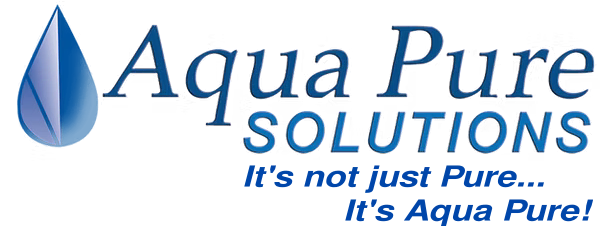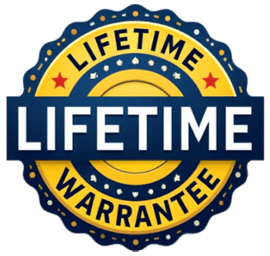Understanding Florida’s Water Safety: Boil Water Notices and Contaminants
Water quality is a pressing concern for residents of Florida, where the state’s unique geography and climate can lead to various water safety issues. From the potential for contamination due to aging infrastructure to the challenges posed by natural disasters, understanding how to navigate these concerns is crucial for public health. This article delves into the intricacies of boil water notices, the reasons behind them, and what residents can do to ensure their drinking water remains safe.
What is a Boil Water Notice?
A boil water notice (BWN) is an alert issued by local water authorities when there is a potential risk of contamination in the drinking water supply. This precautionary measure is typically enacted when water pressure drops below a safe level, often due to incidents such as water main breaks, power outages, or scheduled maintenance.
Reasons for Issuing a Boil Water Notice
- Loss of Water Pressure: When the pressure in the water distribution system falls below 20 psi, it can allow contaminants to enter the system. This situation often arises from infrastructure failures or maintenance activities.
- Microbiological Contamination: If tests reveal the presence of harmful microorganisms, such as E. coli or other pathogens, a boil water notice is issued to protect public health.
- Chemical Contamination: In some cases, the water may be contaminated with harmful chemicals, prompting authorities to recommend boiling water before consumption.
Duration of a Boil Water Notice
Typically, a boil water notice lasts between 24 to 72 hours, depending on the severity of the issue and the time required for testing and repairs. Residents are advised to boil their water until they receive confirmation that the water is safe to drink.
How to Safely Boil Water
When a boil water notice is in effect, it is essential to know how to properly prepare water for consumption. Here’s a simple guide:
- Bring Water to a Rolling Boil: Heat the water until it reaches a rolling boil. This means that the water should be bubbling vigorously.
- Boil for at Least One Minute: Maintain the rolling boil for at least one minute to ensure that any harmful microorganisms are killed.
- Cool Before Use: Allow the water to cool before using it for drinking, cooking, or washing. This cooling period can take about 30 minutes.
- Aerate for Better Taste: If the boiled water has a flat taste, you can aerate it by pouring it back and forth between two containers.
Understanding Water Quality Reports
Every year, water utilities are required to provide consumers with a water quality report. This document outlines the levels of various contaminants found in the water supply and whether they meet federal and state safety standards.
Key Components of Water Quality Reports
- Contaminant Levels: The report lists detected contaminants, their levels, and the maximum allowable limits set by regulatory agencies.
- Source of Water: It details where the water comes from, whether it’s surface water, groundwater, or a combination of both.
- Health Effects: The report often includes information on potential health effects associated with specific contaminants.
Importance of Reading Water Quality Reports
Understanding these reports is vital for residents to make informed decisions about their water consumption. It can also help identify any potential issues that may arise throughout the year.
Common Contaminants in Florida Water
Florida’s water supply can be affected by various contaminants, some of which may not be entirely eliminated during treatment processes. Here are some common concerns:
- Microorganisms: Bacteria, viruses, and protozoa can enter the water supply through various means, including sewage leaks and agricultural runoff.
- Heavy Metals: Contaminants such as lead, arsenic, and mercury can leach into the water from old pipes or industrial discharges.
- Disinfection Byproducts: Chemicals used to treat water, like chlorine, can react with organic matter to form harmful byproducts, such as trihalomethanes.
- Nitrates: Often originating from fertilizers, nitrates can contaminate groundwater and pose health risks, especially to infants.
The Impact of Aging Infrastructure
Florida’s aging water infrastructure is a significant factor contributing to water quality issues. Many pipes and treatment facilities are decades old, leading to increased risks of contamination.
Challenges Posed by Old Pipes
- Corrosion: Older pipes can corrode, allowing heavy metals and other contaminants to leach into the water supply.
- Breaks and Leaks: Aging infrastructure is more prone to breaks, which can lead to significant drops in water pressure and potential contamination.
Solutions for Infrastructure Improvement
Investing in modernizing water infrastructure is crucial for improving water quality. This includes replacing old pipes, upgrading treatment facilities, and implementing better monitoring systems.
Natural Disasters and Water Safety
Florida is no stranger to natural disasters, including hurricanes and floods, which can severely impact water quality.
Effects of Hurricanes on Water Supply
- Flooding: Heavy rains can overwhelm sewage systems, leading to contamination of drinking water supplies.
- Power Outages: Disruptions in power can halt water treatment processes, increasing the risk of contamination.
Preparing for Natural Disasters
Residents should have a plan in place for water safety during natural disasters. This includes storing bottled water, having a backup filtration system, and knowing how to boil water safely.
Community Awareness and Education
Raising awareness about water safety and the implications of boil water notices is essential for community health.
Educational Initiatives
- Workshops and Seminars: Local health departments can host events to educate residents about water safety practices and the importance of monitoring water quality.
- Online Resources: Providing accessible information online can help residents stay informed about current water quality issues and boil water notices.
Encouraging Community Involvement
Community organizations can play a vital role in advocating for better water quality and infrastructure improvements. Engaging residents in discussions about water safety can lead to more informed and proactive communities.
The Role of Water Filtration Systems
Many residents are turning to water filtration systems to ensure their drinking water is safe, especially in areas prone to contamination.
Types of Filtration Systems
- Reverse Osmosis Systems: These systems effectively remove a wide range of contaminants, including heavy metals and microorganisms.
- Activated Carbon Filters: These filters can improve taste and remove certain chemicals but may not eliminate all harmful bacteria.
- UV Purification: Ultraviolet light systems can kill bacteria and viruses, providing an additional layer of protection.
Choosing the Right System
When selecting a water filtration system, residents should consider their specific needs, the contaminants present in their water, and the system’s maintenance requirements.
Conclusion: Staying Informed and Safe
Understanding the complexities of Florida’s water safety is essential for all residents. By staying informed about boil water notices, reading water quality reports, and taking proactive measures, individuals can protect themselves and their families from potential health risks.
Investing in water filtration systems and advocating for infrastructure improvements can further enhance water safety in the community. Ultimately, awareness and education are key to ensuring that Florida’s water remains a safe and reliable resource for everyone.




